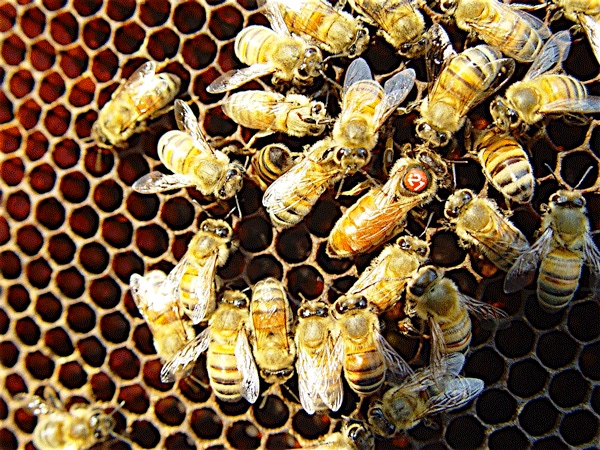
• The beekeepers are claiming the neonicitinoids are significant contributors to the devastating ongoing mortality of bees known as colony collapse disorder (CCD).• This claim has not been proven to be accurate, as most experts agree that CCD is a complex disorder with multiple contributors.
March 25, 2013

In a news release, four beekeepers and five anti-pesticide groups announced they have filed a lawsuit in Federal District Court against EPA for allegedly failing to protect pollinators from neonicitinoid insecticides.
Specifically, the plaintiffs are asking the agency to suspend the registrations of clothianidin and thiamethoxam, questioning the use of conditional registrations for the neonicitinoids, and challenging so-called inadequacies of existing pesticide labels to protect pollinators.
The beekeepers are claiming the neonicitinoids are significant contributors to the devastating ongoing mortality of bees known as colony collapse disorder (CCD). This claim has not been proven to be accurate, as most experts agree that CCD is a complex disorder with multiple contributors.
Earlier, the American Bird Conservancy (ABC) called for a ban on the use of neonicotinoids as seed treatments and for the suspension of all uses until an independent review of the products’ effects on birds, terrestrial and aquatic invertebrates, and other wildlife can be completed.
The ABC commissioned Canadian environmental toxicologist, Pierre Mineau, to conduct the research. The resultant report, “The Impact of the Nation’s Most Widely Used Insecticides on Birds,” concludes that the neonicotinoids are lethal to birds and to the aquatic systems on which they depend.
Accordingly, it is claimed that EPA has underestimated the toxicity of these compounds to birds partly because the risk assessment methods fail to account sufficiently for interspecies variation in toxicity.
For example, the report states that risk assessments underestimate acute risk by up to 10-fold for bird species beyond mallard ducks and bobwhites, the two usual test species.
Bayer CropScience, in a statement to stakeholders, rebutted, “The ABC’s recent publication fails to establish any linkage of avian declines in North America with the use of neonicotinoid insecticides.
“Instead, this report relies on theoretical calculations and exposure estimates that differ from accepted risk assessment methodologies, while disregarding relevant data that are at odds with its claims.
“Perhaps most alarming is the failure of this document to acknowledge there has not been a single instance of confirmed bird mortality from a neonicotinoid application in over 20 years of use according to the ABC’s own incident monitoring records.”
The neonicitinoids were first introduced in the 1990s in response to widespread pest resistance and health concerns linked to older pesticides and quickly became top sellers in global pesticide markets.
These compounds have come under attack by some beekeepers in the United States for their toxicity to bees.
Meanwhile, the European Commission (EC) has indicated it will move ahead with its proposed ban of three neonicotinoids — clothianidin, imidacloprid, and thiamethoxam — by appealing a recent inconclusive 13-9 vote in favor of the ban, with five abstentions.
The EC is planning to put the same text, with some minor adjustments, to the Appeals Committee within the next month or so and hopes to have the measures in place by July 1, 2013.
This proposal follows a report by the European Food Safety Authority which identified a high risk to bees from these neonicitonoid insecticides.
Want access to the very latest in agriculture news each day? Subscribe to Southeast Farm Press Daily.
You might also like:
Beltwide assessment would fund South Texas boll weevil buffer
Four challenges of herbicide-resistant weeds
Kentucky researchers conducting comprehensive poultry litter study
Burndown strategies with calendar running out, crop mix in question
You May Also Like



